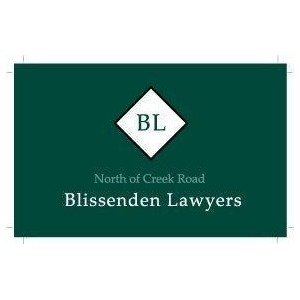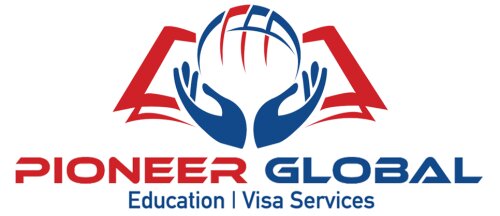Best Government Relations & Lobbying Lawyers in Moonah
Share your needs with us, get contacted by law firms.
Free. Takes 2 min.
List of the best lawyers in Moonah, Australia
About Government Relations & Lobbying Law in Moonah, Australia
Government relations and lobbying in Moonah, Australia, involve engaging with government officials and decision-makers to influence public policy and regulation. This field operates within a complex legal framework designed to ensure transparency, integrity, and the proper functioning of democratic processes. It includes activities such as advising clients on political strategies, compliance with lobbying regulations, and representing interests in policy discussions.
In Moonah, like the rest of Australia, lobbying activities are subject to both federal and state laws, which govern who can lobby, how they must register, and the types of disclosures required. These laws aim to prevent undue influence on government decisions and ensure that lobbying activities are conducted openly and ethically.
Why You May Need a Lawyer
There are several common situations where individuals or organizations might need legal assistance in government relations and lobbying:
- Compliance: Understanding and adhering to the complex regulatory framework governing lobbying activities can be challenging. Legal advice can help ensure compliance and avoid penalties.
- Strategic Advice: Lawyers can offer strategic counsel on how best to present interests to government bodies and influence policy effectively and ethically.
- Registration and Reporting: Assistance with the registration of lobbyists and the preparation of required reports and disclosures.
- Dispute Resolution: Resolving conflicts that may arise between businesses and regulatory bodies, or addressing any investigations into lobbying actions.
- Policy Impact: Understanding how potential legislative changes can impact a business or organization’s operations.
Local Laws Overview
In Moonah, which is part of Tasmania, the local laws regulating lobbying are aligned with state legislation. Tasmania's Integrity Commission oversees the registration and regulation of lobbyists, requiring them to adhere to a code of conduct as part of their professional obligations. Key aspects include:
- Mandatory registration for professional lobbying firms and in-house government relations staff who engage in lobbying as part of their duties.
- Regular reporting requirements detailing lobbying activities, including the clients represented and the topics discussed.
- Prohibition of certain lobbying activities, such as offering gifts or incentives to public officials in exchange for favorable decisions.
- Ethical guidelines to ensure that all interactions with government officials are conducted transparently and in good faith.
Frequently Asked Questions
What is considered lobbying in Moonah?
Lobbying in Moonah includes any attempt to influence government policy or decision-making through direct interaction with public officials or legislators.
Do I need to register as a lobbyist in Moonah?
Yes, if you engage in lobbying activities professionally or as part of your job responsibilities, you will need to register with Tasmania's Integrity Commission.
What rules do lobbyists need to follow?
Lobbyists must comply with the Lobbying Code of Conduct, which includes registering their activities, reporting interactions, and adhering to ethical guidelines.
Are there penalties for failing to comply with lobbying laws?
Yes, non-compliance can result in fines, revocation of registration, and other legal penalties.
Can non-profit organizations lobby in Moonah?
Yes, non-profit organizations can engage in lobbying, provided they comply with the registration and reporting requirements.
What is the role of Tasmania's Integrity Commission in lobbying?
The Integrity Commission oversees the regulation and ethical practices of lobbyists in Tasmania, ensuring transparency and accountability in lobbying activities.
How can a lawyer assist with government relations?
A lawyer can provide legal advice on compliance, assist with strategic lobbying initiatives, and represent clients in interactions with government entities.
Is lobbying only limited to influencing legislation?
No, lobbying can also involve influencing a wide range of government decisions, including regulations, policies, and administrative actions.
How often do lobbyists need to report their activities?
Lobbyists are typically required to submit reports on their lobbying activities periodically, usually quarterly.
What happens if there's a conflict of interest in lobbying?
Conflicts of interest must be managed transparently, and the Integrity Commission provides guidance on handling such situations to maintain ethical standards.
Additional Resources
- Tasmania's Integrity Commission: The primary body overseeing lobbying activities and compliance in Tasmania.
- Australian Government Lobbying Code of Conduct: Offers guidelines and standards for ethical lobbying across Australia.
- Tasmanian Department of Premier and Cabinet: Provides resources and information related to state government operations and public policy.
- Local Legal Communities: Engaging with local legal practitioners specializing in government relations and lobbying can provide insights and support.
Next Steps
If you need legal assistance in government relations and lobbying in Moonah, consider the following steps:
- Research: Begin by researching qualified legal professionals who specialize in government relations and lobbying law.
- Consultation: Arrange a consultation with a lawyer to discuss your specific needs, understand your legal obligations, and explore potential strategies.
- Documentation: Prepare and organize any necessary documentation, including records of lobbying activities, registrations, and reports.
- Compliance Review: Request a comprehensive review of your lobbying activities to ensure full compliance with local laws and regulations.
- Ongoing Support: Consider establishing an ongoing relationship with legal counsel to provide continuous support and guidance on government relations matters.
Lawzana helps you find the best lawyers and law firms in Moonah through a curated and pre-screened list of qualified legal professionals. Our platform offers rankings and detailed profiles of attorneys and law firms, allowing you to compare based on practice areas, including Government Relations & Lobbying, experience, and client feedback.
Each profile includes a description of the firm's areas of practice, client reviews, team members and partners, year of establishment, spoken languages, office locations, contact information, social media presence, and any published articles or resources. Most firms on our platform speak English and are experienced in both local and international legal matters.
Get a quote from top-rated law firms in Moonah, Australia — quickly, securely, and without unnecessary hassle.
Disclaimer:
The information provided on this page is for general informational purposes only and does not constitute legal advice. While we strive to ensure the accuracy and relevance of the content, legal information may change over time, and interpretations of the law can vary. You should always consult with a qualified legal professional for advice specific to your situation.
We disclaim all liability for actions taken or not taken based on the content of this page. If you believe any information is incorrect or outdated, please contact us, and we will review and update it where appropriate.









